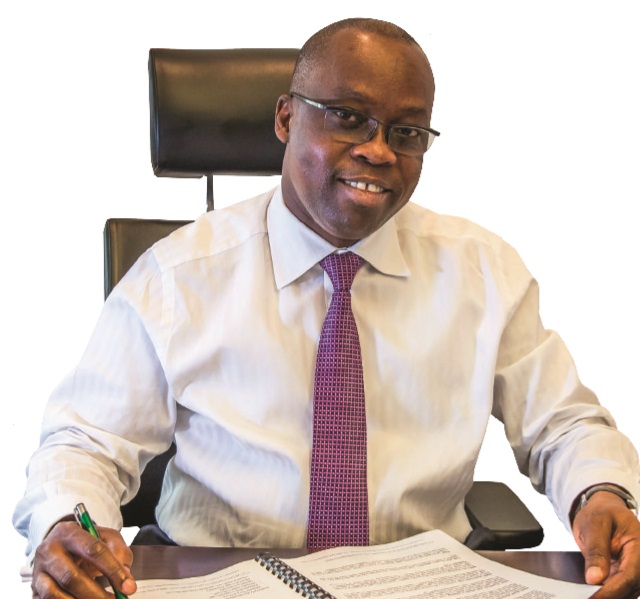
In September 2015,Adewale Fayemi, became the General Manager of Total E&P Uganda with a clear job brief: Prepare and oversee Total’s operations in the Lake Albert basin transition from the exploration and appraisal phase to the development phase, writes Ronald Musoke
Fayemi’s appointment came just nine months after the departure of his predecessor; Francois Rafin, who was re-called to the firm’s headquarters in Paris.
Rafin had come to Uganda at a time the government and the oil firms were painstakingly ironing out details of an agreement on the commercialisation of Uganda’s oil through a crude oil export pipeline and a refinery.
It was not until September 2013 that the government issued the first production licence to the Chinese firm, CNOOC. Its partners, Tullow and Total E&P Uganda had to wait a little longer as both the government bickered over the oil production strategy.
With such issues at the back of his mind, Fayemi said in one of his first interviews with the media that he hoped to get things moving.
With over 20 years of experience spanning all aspects of the upstream oil and gas sector; including project development, operations and exploration in different domains (land, swamp, offshore, deep offshore) in Ivory Coast, Nigeria and The Netherlands, he probably knew what he was saying.
Pick-up in activity
The Independent is interested to know what Total’s strategy is, now that it is effectively taking the lead role of commercialising and even managing Uganda’s petroleum resources across the value chain.
For answers we headed to the company’s headquarters on Yusuf Lule Road which overlooks the emerald 18-hole Uganda Golf Club course in Kampala. Here, the recent pick-up in activity is quite evident. We have to wait 30 minutes outside his office on the fifth floor of the Course View Towers for Fayemi to see us. But we are kept busy watching the buzz of activity around the office.
One man, Martin Krzewski, Total E&P Uganda’s Business and Development Manager, for example, has no less than two meetings in that time. He is a cheerful man and he breezily walks out of one of the boardrooms where he has just had a meeting. After a few minutes of freshening up, he enters another boardroom for another meeting. Later they are joined by Zhi Chen, the head of the legal and commercial department at CNOOC Uganda Ltd.
Soon, Ahlem Friga Noy, Total E&P Uganda’s Corporate Affairs Manager ushers us into Fayemi’s spacious and well-furnished office. After business pleasantries, Friga says the General Manager can only afford a short time for us. He has to go into another meeting in 30 minutes.
We note that for a long time, West Africa remained the heart of Total’s continental activities but in recent years, it has also been engaged in a move towards new oil provinces, especially in East Africa as shown by its acquisition of the Lake Albert fields in 2012, a development which put Uganda at the centre of its East African strategy.
First, says Fayemi, Total intends to develop Uganda’s petroleum resources in the “most economical way,” but also ensure that the development is environmentally compliant because the activity is in a sensitive area – the Murchison Falls National Park.
“Our biodiversity charter is quite clear on this; which is to make sure that there is no net loss to the environment,” Fayemi says.
The global conservation non-profit—the International Union of Conservation of Nature’s (IUCN) red list— shows how Total’s project is in an area of Uganda which hosts 14% of all Africa’s amphibians and 52% of the continent’s birds, 35% of all butterflies, 39% of all mammals and comprises 70% of the country’s protected areas. Fayemi says they are up to the challenge of extracting oil from the conservation area.
Total’s operations are being developed by strict adherence to environmental and wildlife policies with the National Environment Management Authority (NEMA) and application of international good practices illustrated by the International Finance Corporation (IFC) performance standards which are regarded as the most stringent on environment and biodiversity.
In 2013, for example, Total E&P pioneered the use of highly innovative technology in the acquisition of seismic data using cable-less 3D technology, for the first time onshore in Africa.
“This is an industry that we don’t want to see start and end (just) like that; so we see the industry beyond 25 years that our licences stipulate today,” Fayemi says.
Total’s grip on Uganda’s petroleum industry is not only visible in the upstream sector, it has also made in-roads into the downstream following its acquisition of the Gulf Africa Petroleum Corporation (Gapco) operations.
With the company now boasting over 230 gas stations countrywide, the French firm is probably the biggest downstream company in the country.
“The focus and strategy for Total is to develop places in East Africa as we have shown in other parts of Africa so we remain the leading international oil company in the region,” Fayemi says.
 The Independent Uganda: You get the Truth we Pay the Price
The Independent Uganda: You get the Truth we Pay the Price


